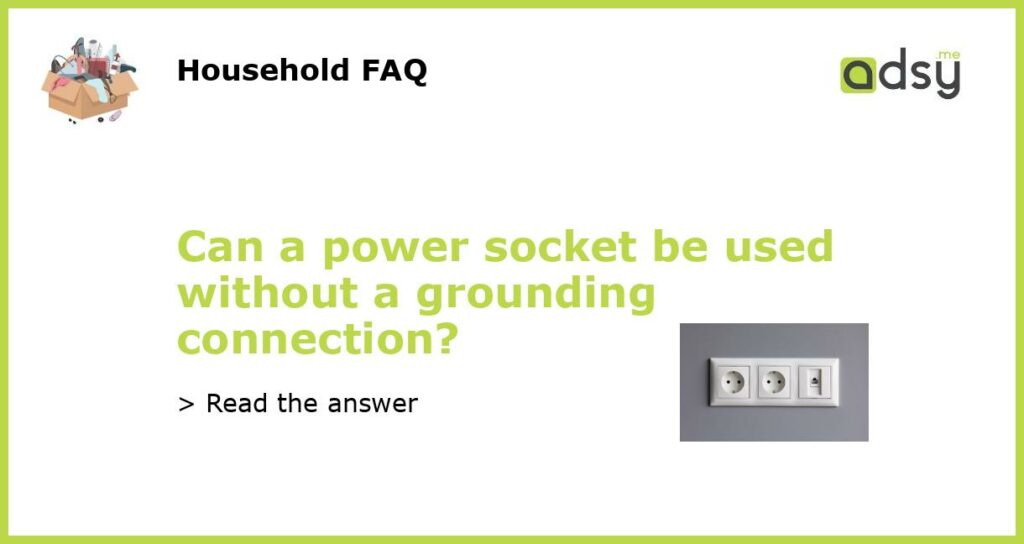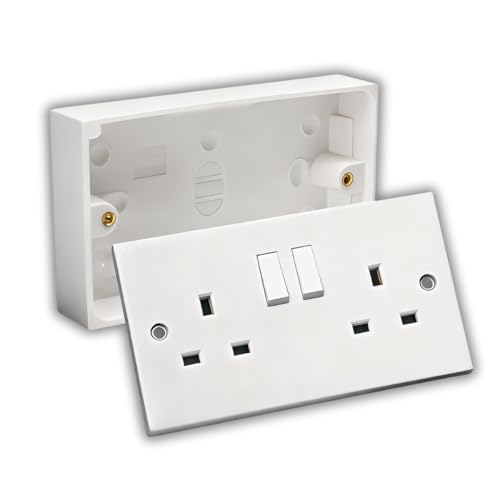Yes, a power socket can be used without a grounding connection. Here’s what you need to know.
In most cases, electrical appliances are designed to have a grounding connection for safety reasons. Grounding helps to protect against electrical shocks and reduces the risk of electric fires. However, there are situations where it is possible to use a power socket without a grounding connection. Here’s why and when it may be okay to do so.
Understanding the Basics of Grounding
Grounding in electrical systems involves connecting electrical devices or appliances to the ground or earth. This is typically done through a third prong on an electrical plug, known as the grounding prong. The grounding prong is an important safety feature that allows excess electrical charge to flow safely into the ground, instead of potentially causing harm to users or damaging the appliance.
When an electrical device is properly grounded, it is less likely to experience electrical malfunctions, such as short circuits or electric shocks. However, not all electrical devices require grounding, and not all power sockets have a grounding connection.
Devices That Do Not Require Grounding
Certain electrical devices are manufactured in a way that does not require grounding. These devices typically have a two-prong plug, rather than a three-prong plug with a grounding prong. Examples of such devices include laptops, cell phone chargers, and small kitchen appliances.
These devices are designed to operate safely without a grounding connection because they have built-in insulation and other safety features that protect against electric shock. However, it is important to note that these devices should only be used with power sockets that are specifically designed for two-prong plugs. Plugging a two-prong device into a three-prong socket without proper grounding can be dangerous.
Using an Adapter
If you have a device with a three-prong plug and you need to use it with a power socket that does not have a grounding connection, you can use a properly designed adapter. An adapter allows you to connect the device to the socket and still make use of the two-prong outlets available.
It’s important to use a high-quality, safety-approved adapter that is specifically designed for this purpose. Using a poorly designed or cheap adapter can compromise the safety of your device and increase the risk of electrical fires or shocks. Always consult the manufacturer’s instructions or seek professional advice to ensure you are using the correct adapter for your specific device.
When Grounding Is Essential
While it is possible to use certain electrical devices without grounding, there are situations where grounding is essential for safety reasons. Some examples include:
- Large appliances like washing machines, refrigerators, or ovens
- Heavy-duty power tools
- Electrical equipment used in potentially hazardous environments
These types of devices should always be connected to a properly grounded power socket. Using them without grounding can pose a serious risk to both users and the devices themselves.
A power socket can be used without a grounding connection in certain situations, particularly with electrical devices that do not require grounding. However, it is important to understand the safety implications and follow proper guidelines when using these devices. Always consult the manufacturer’s instructions and seek professional advice if you are unsure about whether your specific device requires grounding or if it is safe to use without it.






